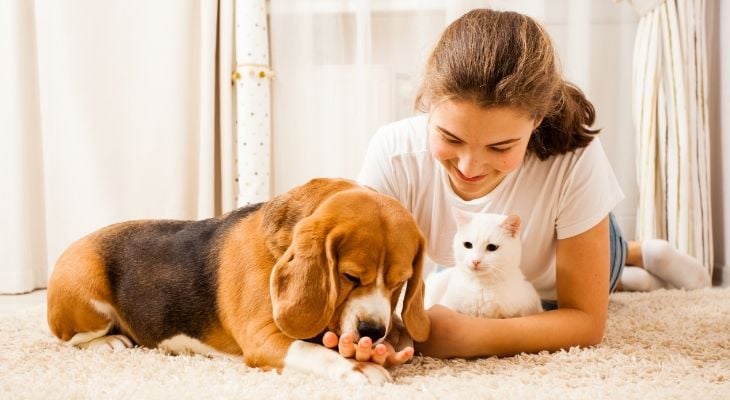Did you know that pigs are a lot cleaner than the reputation they have? While they do roll around in the mud, this keeps them cool. They're actually one of the cleanest animals. They, however, require care, just like any animal. Before you take on more than you can handle, you should educate yourself
Read more- Home >
- Articles >
- Living With Your Pet >
- Bringing Your Pet Home

Prepare your house for your pet's arrival. A special place should be designated for it to eat, sleep, and eliminate. Obtain any necessary accessories (eg, collar, leash, ID tag, crate, cage, aquarium and dishes) before you bring your pet home. For most pets, you will need to pet-proof your home just as you would child-proof your home to avoid accidents. Harmful cleansers, plants, electrical cords, and breakable objects should be kept out of reach. Open windows should be screened.
Roaming pets are prime candidates for fights with other animals, traffic accidents, and communicable diseases from other animals. Their life span can be expected to be considerably shorter as a result.
Most pets are strictly indoor pets and are perfectly content, as long as they have access to food and fresh water at all times. AVMA strongly recommends that for a healthier, happier pet you consider keeping your pets indoors only. If your pet must go outside, make sure you know where it is at all times, that the pet is old enough to manage on its own, that it is identified in some fashion (microchip ID or breakaway collar and tag), current on vaccinations, and not outdoors in extremely cold, hot, or inclement weather.
If you don't want your pet in certain areas of the house, start training it immediately to avoid those areas. When choosing where your pet will sleep, keep in mind some pets are nocturnal animals and will be active at night. Placing soft bedding materials in secluded corners will help your pet to feel at home.
-
Pigs
Category: Choosing Your Pet, Livestock, Choosing Your Pet, Livestock, Pigs
-
Goats
Category: Choosing Your Pet, Livestock, Choosing Your Pet, Livestock, Goats
Maybe, you've heard that goats will basically eat anything they can put in their mouth. This might give you the impression that they're simple animals to take care of, but this isn't the case. Goats need proper nutrition and enough space, among other things, to grow strong and healthy. Therefore, before
Read more -
Donkeys, Horses & Mules
Category: Choosing Your Pet, Livestock, Choosing Your Pet, Livestock, Donkeys, Horses & Mules
There are many benefits to owning a donkey, horse, or mule. However, it is important to know that these animals (all belonging to the sub-family called equus) require special housing, feeding, and care for a healthy life. Here are a few important considerations to make before bringing a new animal home. Housing
Read more -
Cows
Category: Choosing Your Pet, Livestock, Choosing Your Pet, Livestock, Cows
Are you thinking about getting a cow? Before you do, there are a few considerations you need to make. These large and gentle animals need a considerable amount of space, have special dietary needs, and have certain health needs you’ll have to pay attention to. Plus, they can live for up to twenty-five
Read more -
Sheep
Category: Choosing Your Pet, Livestock, Choosing Your Pet, Livestock, Sheep
Sheep are adorable with their naturally wooly coats. With all that wool comes responsibility, though. If you're considering raising sheep, you should know what it entails to take care of them. That way, you're prepared for their arrival and aren't overwhelmed after you adopt them. Housing What type
Read more
Location
Find us on the map
Office Hours
Our Regular Schedule
Main Hours - (530) 432-8443
Monday:
9:00 am-5:00 pm
Tuesday:
9:00 am-5:00 pm
Wednesday:
9:00 am-5:00 pm
Thursday:
9:00 am-5:00 pm
Friday:
9:00 am-5:00 pm
Saturday:
Closed
Sunday:
Closed
